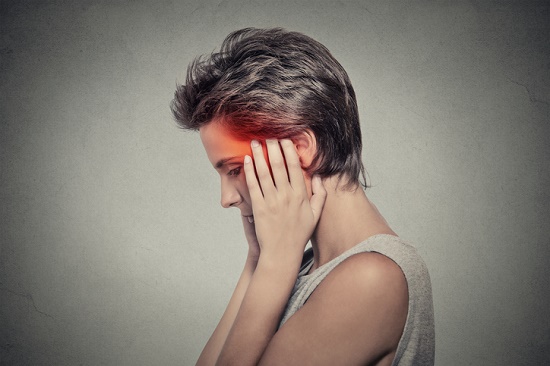
Although it’s true that there is presently no scientifically-proven way to cure tinnitus, researchers are hard at work to discover one. In the meantime, a range of tinnitus therapy options exist that can afford considerable relief.
Think about it in this way. If you have a headache, you take Tylenol regardless of the fact that it doesn’t “cure” your headache. Pain relievers merely make the pain disappear into the background to ensure that it doesn't impact your day. In the same way, tinnitus therapies can help minimize the degree of symptoms so that your tinnitus has marginal impact on your daily routine.
Considering that every person reacts to tinnitus in a different way, there’s no one-size-fits-all treatment. You’ll have to work together with your provider to find the option that is most effective for you.
Here are many of those options.
Tinnitus Treatment Solutions
If you experience tinnitus, you’ll want to investigate the following treatment options with your hearing care or healthcare provider.
Treatment of the underlying condition
While the majority of instances of tinnitus are not curable—and are derived from hearing loss or other non-reversible injury—some cases are the result of an underlying physical ailment. You’ll want to rule these out before pursuing other treatment options.
Possible physical causes of tinnitus include jaw joint problems (temporomandibular joint, or TMJ dysfunction), excessive earwax or other blockages in the ear canal, head and neck injuries, and responses to some medications.
General Health And Fitness
The severity of tinnitus symptoms can vary depending on all-around health. Taking actions to enrich general wellness is, therefore, one thing tinnitus patients can get started on right away to alleviate the intensity of symptoms.
Every person is unique, and what works out for someone else may not be right for you. The idea is to experiment with different activities to discover what is most effective.
Strategies that have displayed promise include instituting a healthy diet, achieving plenty of physical exercise, meditating, and partaking in activities like cycling, which can conceal the sounds of tinnitus.
Hearing Aids
Tinnitus is commonly associated with hearing loss and hearing damage. In reaction to decreased stimulation from external sound, the brain undergoes maladaptive changes that bring on the perception of tinnitus.
By increasing the amount of external sound, hearing aids can help mask the tinnitus, making the sounds of tinnitus less noticeable. Hearing aids in addition provide enhanced sound stimulation to the brain, which is presumed to be neurologically favorable.
Sound Therapies
Sound therapy is basically the delivery of sound in the form of white noise, pink noise, or nature sounds to decrease the perceived burden or intensity of tinnitus.
Sound therapy works by masking the tinnitus and also by teaching the brain to reclassify the sounds of tinnitus as trivial. This dual effect can limit the short and long-term severity of tinnitus.
Sound therapy can be delivered through special tabletop devices, but also through portable multimedia products and even through hearing aids. Medical-quality sound therapy makes use of tailored sounds that match the pitch of the individual’s tinnitus for optimal outcomes.
Behavioral Therapy
Bear in mind that tinnitus is the perception of sound in the brain when no outside sound is present. The condition is, therefore, very subjective, and each person responds differently.
In fact, whether or not the person perceives tinnitus as life-altering or as no-big-deal is predominantly as a consequence of psychological reactions and not to the volume or pitch of the tinnitus. That’s why cognitive/behavioral approaches to tinnitus therapy have been shown to be exceptionally effective.
A number of techniques exist, including Mindfulness-Based-Stress-Reduction (MBSR) and Tinnitus-Retraining-Therapy (TRT), which combines cognitive-behavioral-therapy with sound therapy.
Drug Therapy
While there are no current FDA-approved medications for tinnitus, antianxiety and antidepressant prescriptions are often used to manage the behavioral responses to tinnitus. These drugs do not appear to impact tinnitus itself, but may offer much-needed relief if thought necessary by your doctor.
Experimental Therapies
The search for a tinnitus cure is on-going. Several experimental therapies are in development or evaluation and newer approaches become available every year. If your tinnitus is severe, and you’ve attained little benefit from existing therapies, you could be a candidate for one of these advanced treatment options.
Check out the Experimental Therapies webpage at the American Tinnitus Association website for more information.
Find Relief For Your Tinnitus
Tinnitus is currently being aggressively studied, with new findings and prospective treatment methods introduced every year. Even today, there are a variety of encouraging treatments that, while not supplying a cure, can supply significant relief. You owe it to yourself to check out these options, remain positive and persistent in your tinnitus care, and work with your provider to fine-tune your treatment plan for the best results.